Beeswax Lip Balm vs Vaseline: Comparing Benefits for Your Lips
Lip care is an essential aspect of personal grooming, and the choice between beeswax lip balm and Vaseline is a common point of consideration for many. While both products aim to provide relief from dry, chapped lips, their composition sets them apart. Beeswax lip balm is derived from a natural source and often combined with other nourishing ingredients, offering a more organic moisturizing experience.
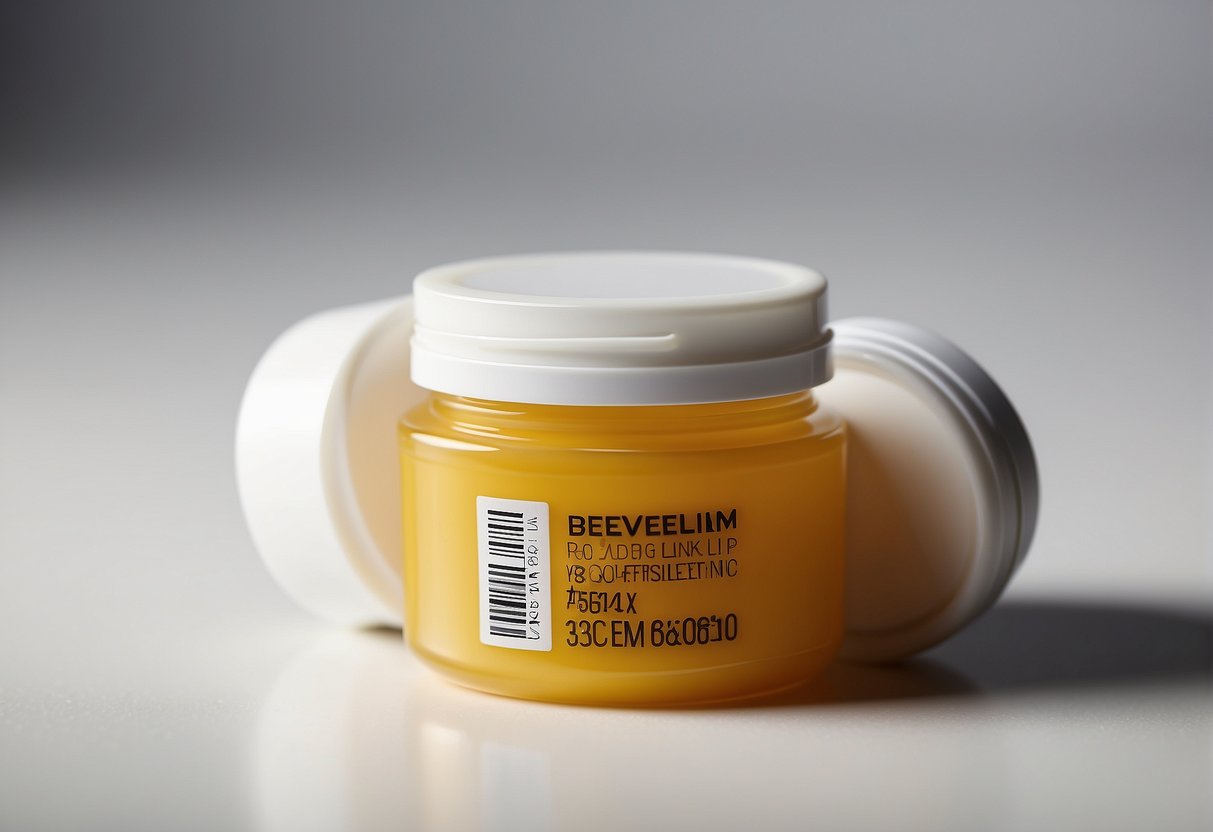
On the other hand, Vaseline, or petrolatum, is a byproduct of the oil refining process and excels at sealing in moisture due to its occlusive nature. It is clear, thick, and generally has a longer shelf life. Both options can aid in lip hydration, but user preference often dictates the choice, with those favoring natural products inclined to use beeswax lip balm and those seeking a strong barrier turning to Vaseline.
Key Takeaways
- Beeswax lip balm and Vaseline serve similar purposes but differ markedly in their ingredients and origin.
- The choice between the two often depends on user preference for natural products or for an effective moisture seal.
- While both can help in moisturizing, beeswax lip balms may include additional nourishing substances for lip care.
Composition and Ingredients
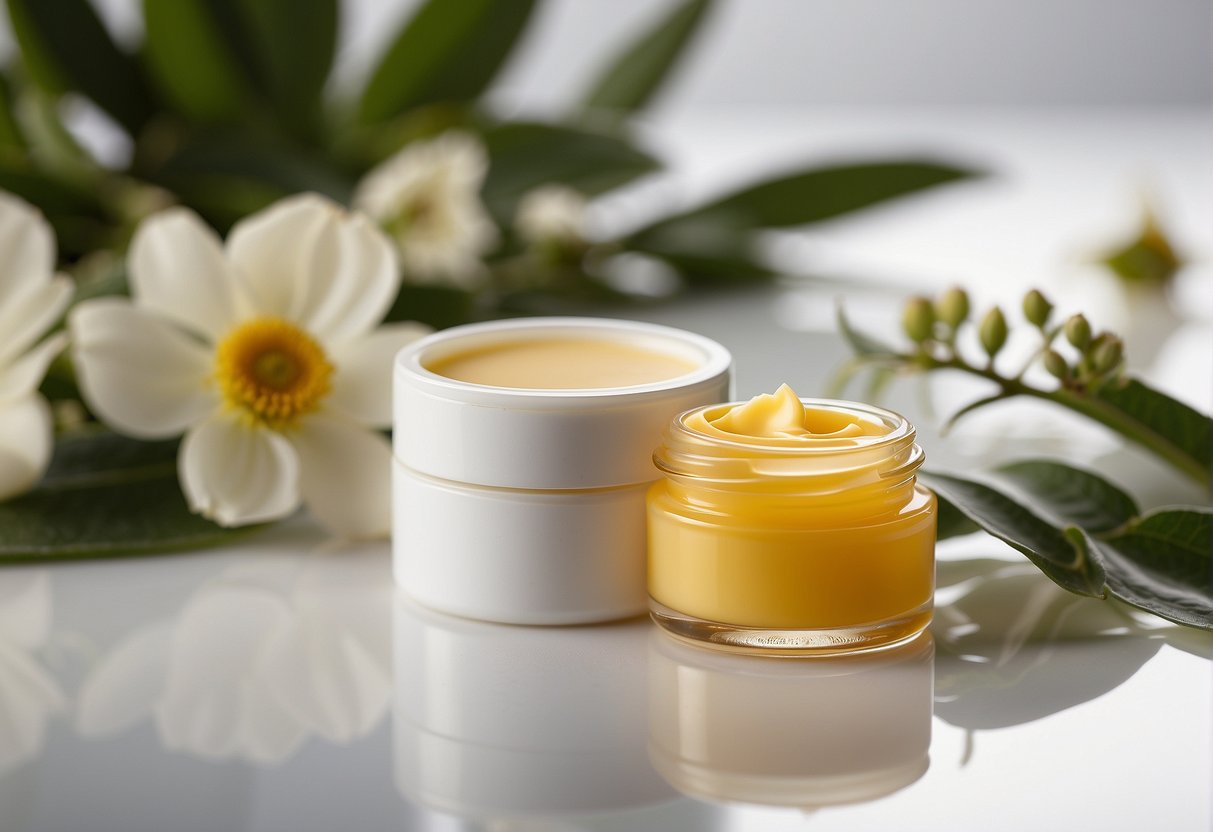
We will explore the distinct components that make up beeswax lip balm and Vaseline, highlighting their differences in composition and benefits to the lips.
Natural Oils and Butters
Beeswax is often the foundation of natural lip balms. It acts as a barrier, sealing in moisture. Common ingredients complementing beeswax include:
- Shea Butter: Renowned for its moisturizing properties.
- Coconut Oil: Known for its hydrating and antimicrobial effects.
- Jojoba Oil: Similarly beneficial for its moisturizing capabilities and resemblance to skin's natural oils.
- Avocado Oil: Packed with vitamins A, D, and E, nourishing the lips.
- Castor Seed Oil: Offers a glossy finish and further hydration.
Petrolatum-Based Products
At the heart of products like Vaseline is Petroleum Jelly. A byproduct of the oil industry, it's praised for its occlusive properties, creating a protective layer on the lips.
Vitamins and Antioxidants
Both beeswax lip balms and petrolatum-based products often include:
- Vitamin E: An antioxidant that helps nourish and protect the lips.
- Additional antioxidants might also be added to enhance the protective quality of the lip balms.
It is essential to consider the different ingredients used in these products, as they each contribute unique benefits to the maintenance of healthy lips.
Hydration and Moisturization
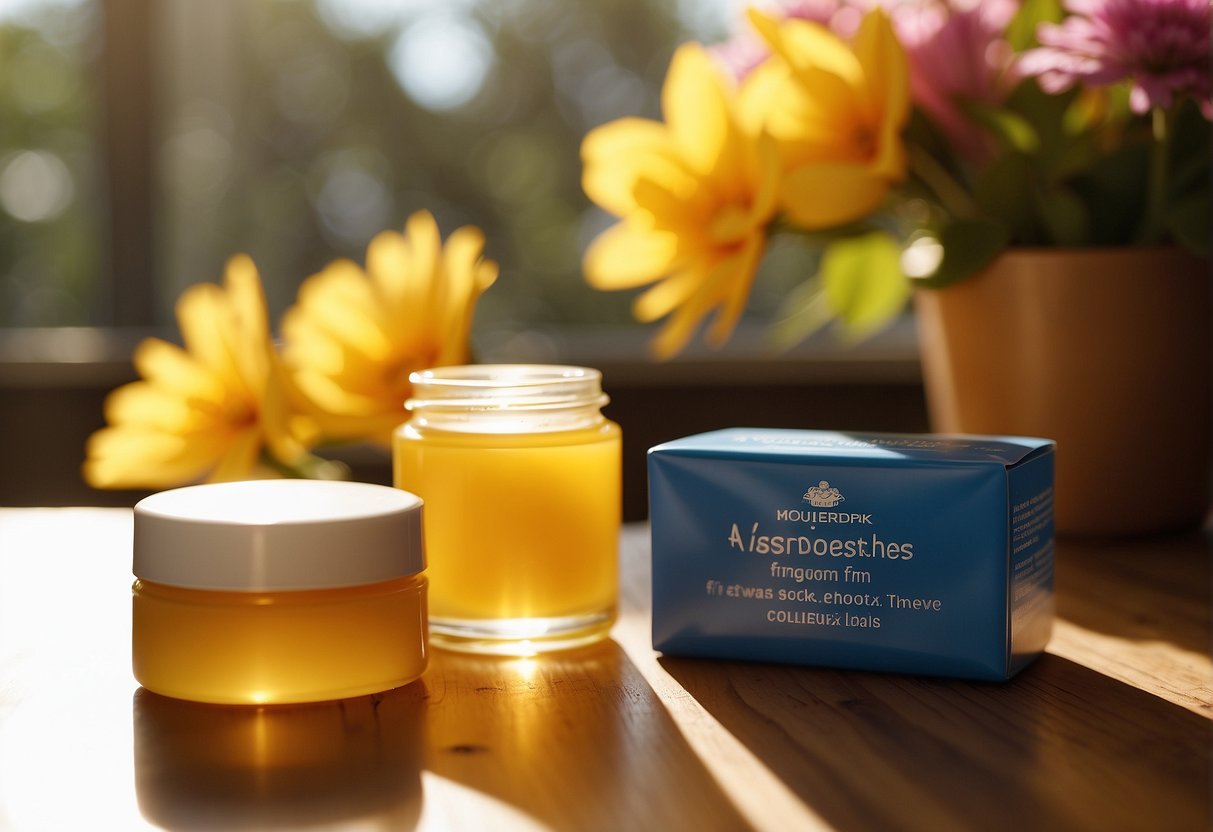
When considering hydration, we're referring to the water content within the lips, essential for plump and healthy skin cells. Products with humectants, such as hyaluronic acid and glycerin, excel at drawing moisture from the surroundings into the lips, helping alleviate dryness.
In the realm of moisturization, we look towards ingredients that create a barrier to actually lock in this moisture, preventing water loss which can lead to dry and chapped lips. We see beeswax lip balm as an excellent emollient, providing a smooth, soft barrier on the surface of the lips that aids in the retention of water.
Our assessments indicate that Vaseline, primarily composed of petrolatum, is a highly effective occlusive, sealing in moisture. It also delivers a strong defense against harsh environmental factors which might strip the lips of their natural oils. Conversely, beeswax offers added nourishment with its vitamin and mineral content and its more breathable protection encourages better overall hydration of the lip tissue.
Thus, we consider both beeswax lip balms and products like Vaseline to be benificial in their own right. Beeswax lip balms, with their natural components, provide substantial moisturizing qualities and inherent skin barrier support, while Vaseline acts as a powerhouse in forming a protective shield around our lips, preventing moisture loss effectively. The choice between the two may depend on the specific needs of your lips and your preference for natural ingredients.
Lip Care Benefits
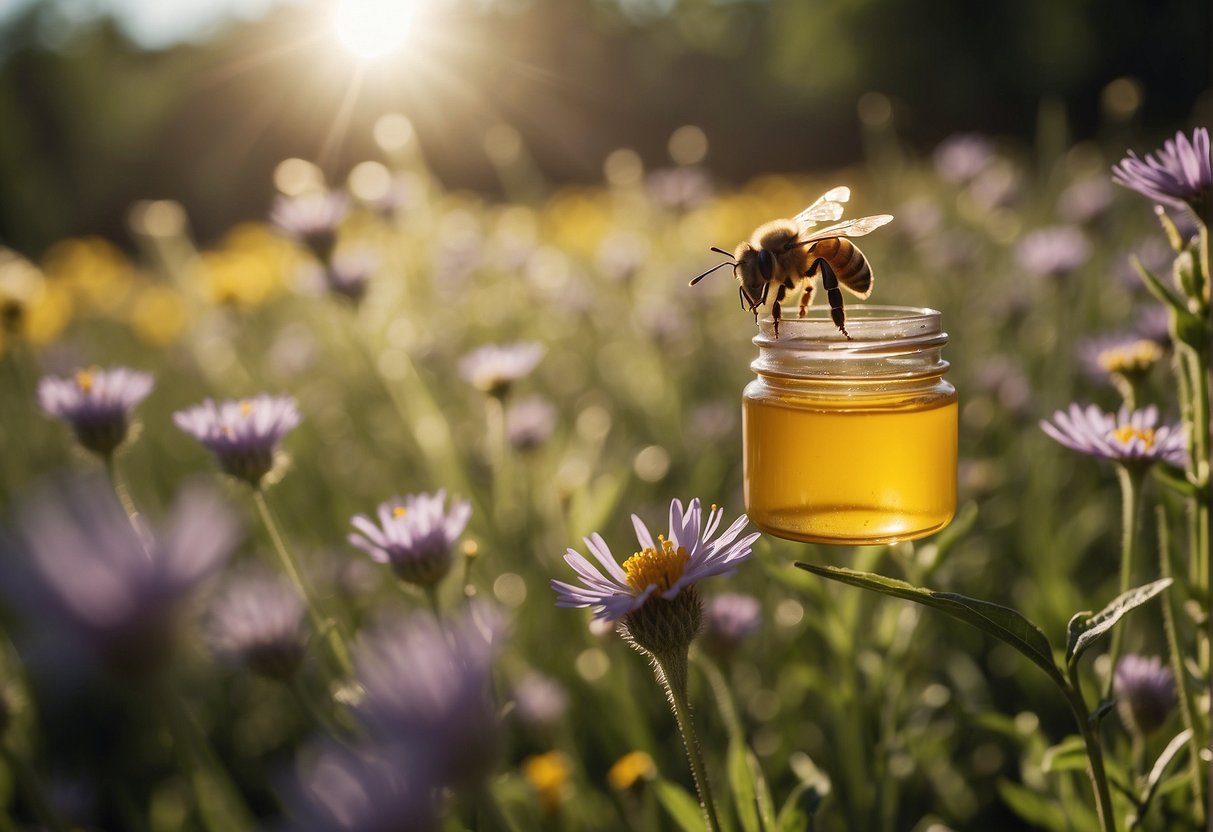
Beeswax lip balm and Vaseline provide substantial benefits for maintaining healthy lips. We will explore how each product protects lips from environmental stress and examine dermatologist recommendations for lip care.
Protection from Environmental Stress
Beeswax lip balm creates a protective barrier on the lip surface, which guards against the drying effects of wind, cold temperatures, and indoor heating. Lanolin and ceramides are often integrated into these balms to enhance moisture retention and repair chapped lips. Conversely, Vaseline, being a moisturizer derived from petroleum jelly, efficiently seals in moisture to prevent cracked lips and accelerates the healing process.
Dermatologist Recommendations
Dermatologists often recommend products based on beeswax for people with sensitive skin conditions like eczema or psoriasis due to its natural antibacterial properties and ability to promote healing. However, Vaseline is also favored for its simplicity and effectiveness, especially in cases where a non-irritating and hypoallergenic option is needed. It's important to consider individual skin needs, as some may find one product more beneficial than the other for their specific condition.
Product Forms and User Experience
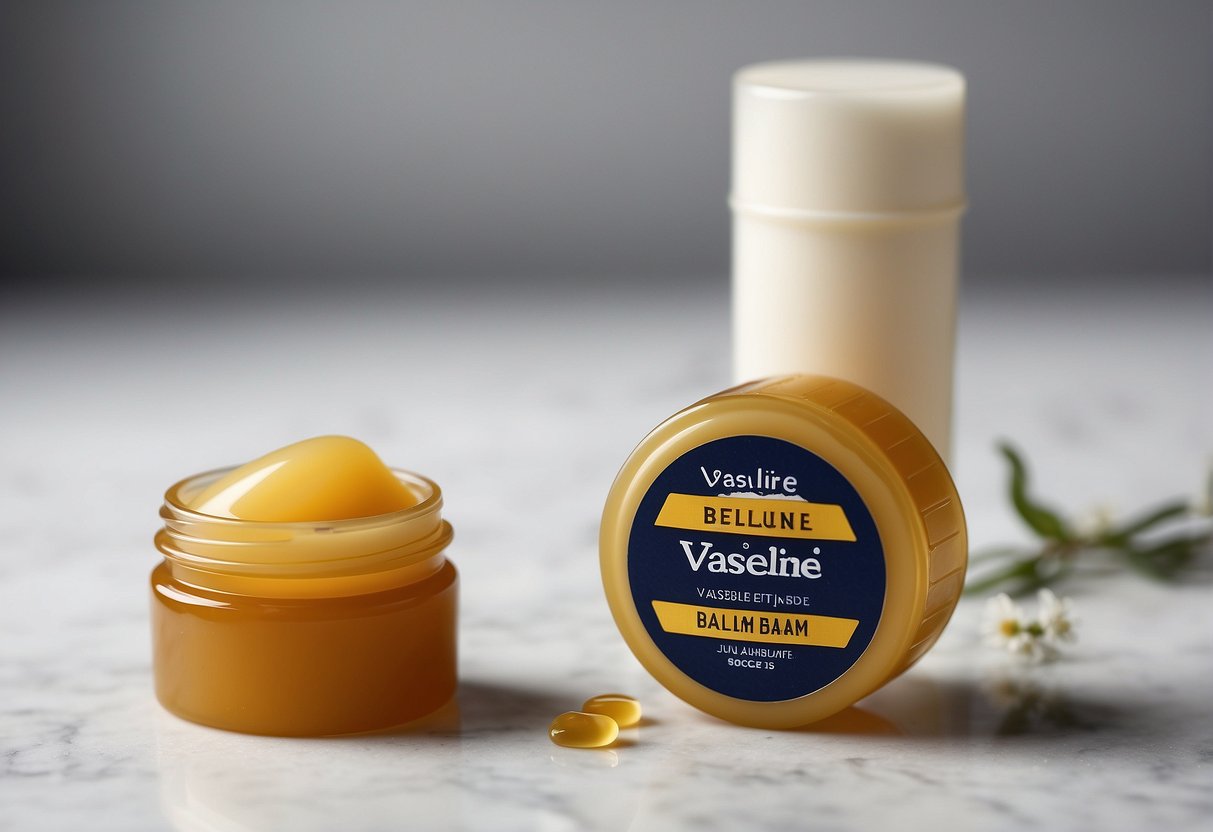
In comparing beeswax lip balm and Vaseline, we notice a distinct variation in the form and user experience. Beeswax lip balms are typically found in stick, pot, or tube packaging, appealing for their portability and ease of application. We see that sticks and tubes are often favoured for their hygienic application directly to the lips, whereas pots may require finger application, which is less convenient, especially when on the move.
Beeswax balms are notably waxy and offer a firm texture which can provide a cooling sensation when enhanced with ingredients like peppermint or menthol. The inclusion of granular elements in some beeswax products can offer exfoliation, but might not be as smooth in application as petroleum-based alternatives. We often find that beeswax formulations are augmented with natural fragrances and essential oils, creating a sensory experience with each use.
On the other hand, Vaseline, generally packaged in jars or travel-sized tubes, has a uniquely smooth texture that's consistent across environmental conditions. It lacks the waxy consistency, as well as the potential for variety in texture that beeswax provides. Vaseline is usually fragrance-free, though some variants may contain additional elements like camphor for a cooling effect. Its minimalistic formulation and packaging cater to those seeking a straightforward, moisture-sealing product.
| Beeswax Lip Balm | Vaseline |
|---|---|
| Stick, pot, tube | Jar, travel-sized tube |
| Waxy consistency | Smooth texture |
| Cooling (optional) | Cooling (optional) |
| Fragrant | Typically fragrance-free |
| Exfoliating (optional) | Non-exfoliating |
Safety and Environmental Concerns
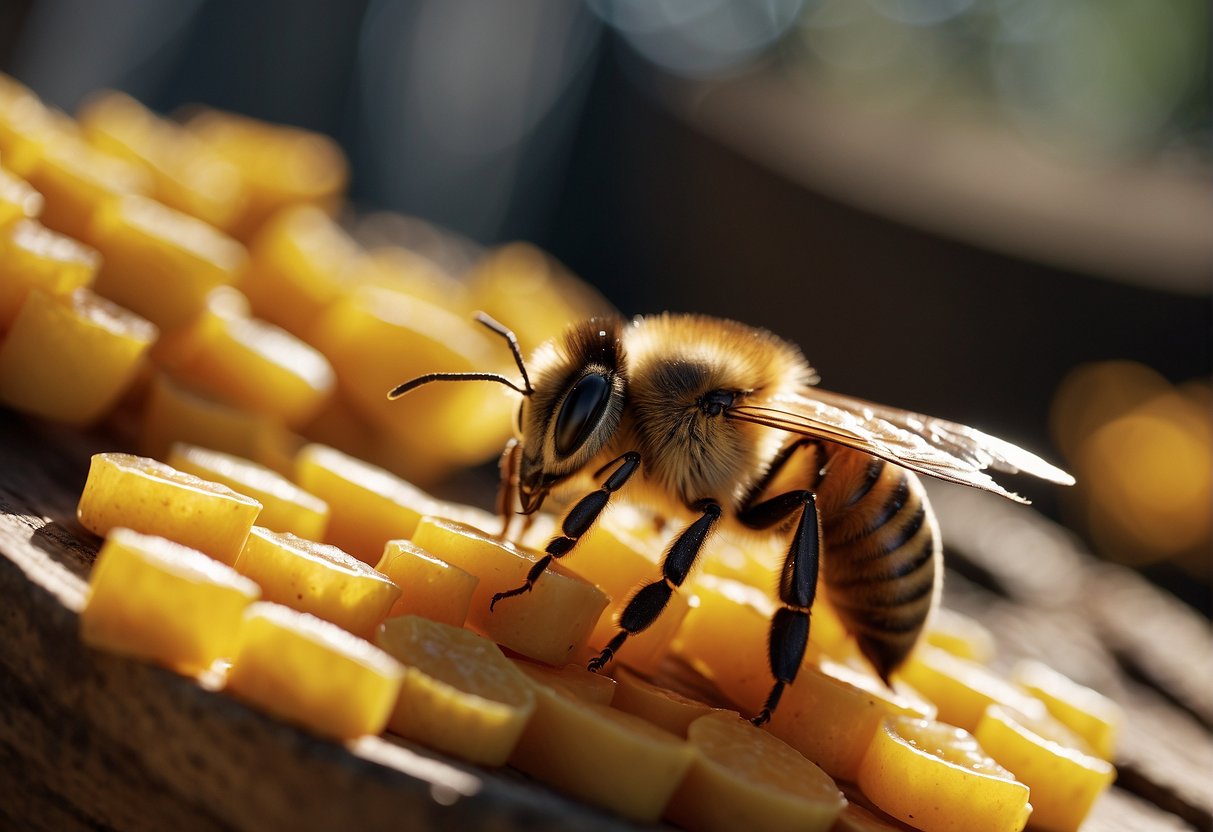
When considering the safety and environmental impact of beeswax lip balm versus Vaseline (petrolatum jelly), we navigate several key factors. Beeswax lip balm often appeals to those seeking a natural, eco-friendly alternative to traditional petroleum-based products. Since beeswax is a natural substance produced by bees, it is typically biodegradable and less likely to harm the environment upon disposal.
Vaseline, while effective at sealing in moisture, is a byproduct of the oil refining process, raising concerns about sustainability and ecological footprint. We also observe that beeswax products are more likely to align with cruelty-free and vegan values, as long as no harm comes to bees during the sourcing process. However, some vegans may avoid beeswax entirely, preferring plant-based waxes to ensure no animal-derived ingredients are used.
In terms of skin health, beeswax contains natural properties that may protect the skin, while Vaseline provides a barrier without additional skin care benefits. Concerns regarding the use of synthetic fragrances in lip balms are valid, as they can lead to allergic reactions; fragrance-free options are available in both beeswax and petrolatum products. Beeswax balms may also champion organic ingredients, which avoid the use of pesticides and synthetic fertilizers, contributing to a healthier ecosystem.
Lastly, the potential for exposure to free radicals is worth mentioning. While petrolatum is highly refined and deemed safe by numerous health authorities, there is debate over the presence of impurities. We opt for high-quality, safely processed ingredients, whether choosing a beeswax or petroleum-based lip balm, to ensure our health is not compromised.
Frequently Asked Questions
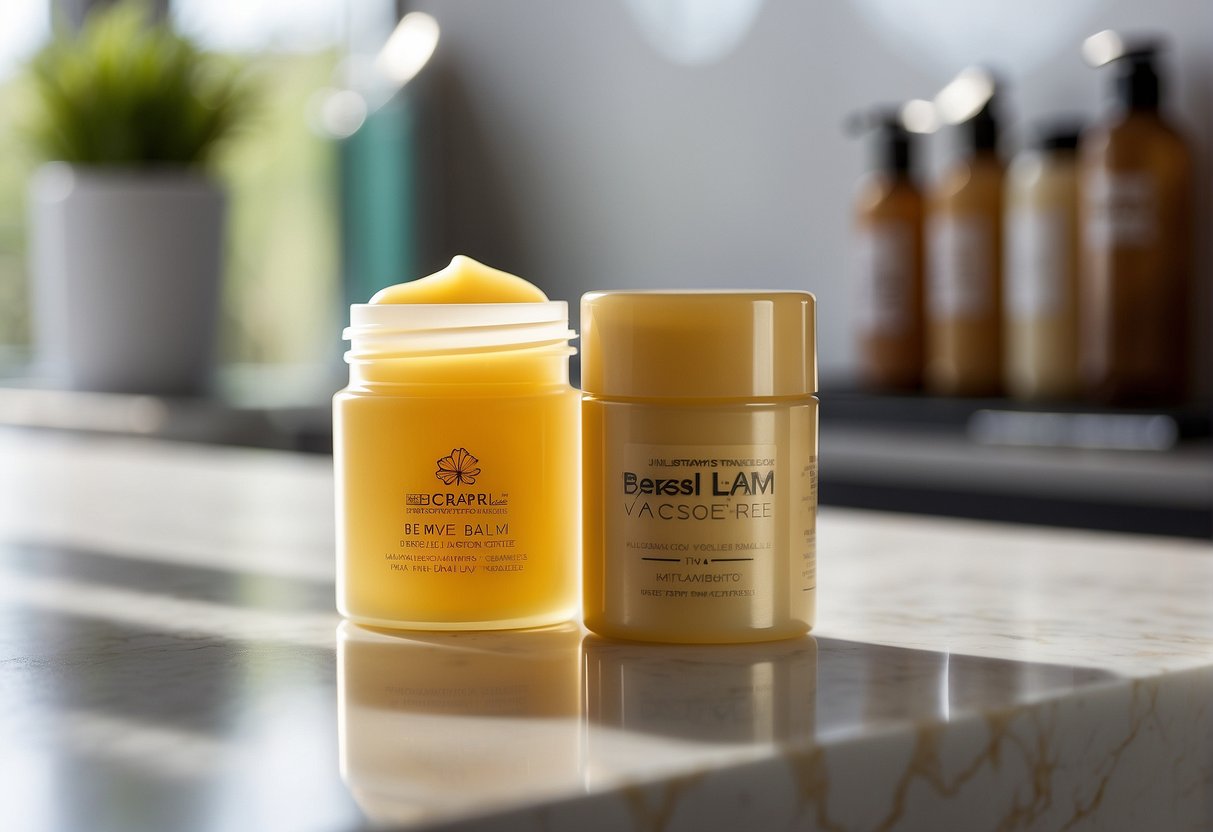
In this section, we address common inquiries about the use and effects of beeswax lip balm versus Vaseline on lip health.
What are the differences between beeswax lip balm and Vaseline in moisturizing lips?
Beeswax lip balm and Vaseline differ in their ingredients and how they moisturize the lips. Beeswax forms a protective barrier, retaining moisture naturally, while Vaseline, which is petroleum jelly, creates a seal over the skin but doesn't hydrate the lips.
Can using Vaseline on the lips cause them to darken, especially when exposed to the sun?
There is no concrete evidence suggesting Vaseline causes lip darkening. However, as it doesn't contain sun protection, extended exposure to sunlight without additional UV protection could potentially lead to darker lips.
What are the known side effects of using Vaseline petroleum jelly on the lips?
Using Vaseline petroleum jelly on the lips is generally safe. Rare side effects may include allergic reactions, such as redness or irritation, if one is sensitive to petroleum products.
How does beeswax lip balm benefit the lips compared to Vaseline?
Beeswax lip balm benefits the lips by not only forming a protective layer but also providing nourishment thanks to its natural vitamins and antioxidants. In comparison, Vaseline primarily offers a barrier without additional nutrients.
What are the best alternatives to Vaseline for treating extremely dry lips?
Alternatives to Vaseline for extremely dry lips include natural oil-based products like coconut oil, shea butter, and cocoa butter, which offer moisture and nourishment.
Which ingredients in lip balms are most effective for hydrating and protecting the lips?
Ingredients such as hyaluronic acid, ceramides, and glycerin are effective for hydration, while beeswax, dimethicone, and mineral oil are excellent for protecting the lips against environmental factors.